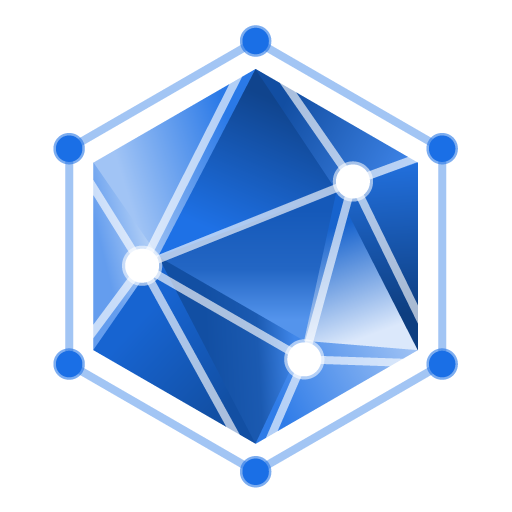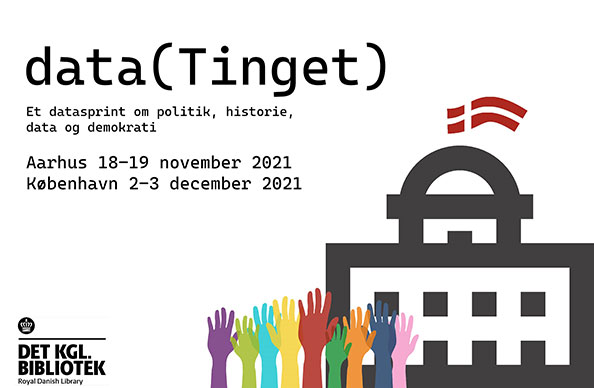For the majority of researchers and students of the humanities, digital methods are far from standard procedure, and this is exactly what initiatives such as the datasprints organised and financed by The Royal Danish Library hope to change.
The value of digital methods in the humanities is gradually becoming clearer across disciplines. However, as programming and coding seems far from the traditional methods of the humanities, work still has to be done to fully integrate digital approaches in both research and teaching across the humanities.
Making use of digital methods opens new opportunities for working with large amounts of data and identifying connections across material – something that would simply be impossible without the integration of digital methods into the humanities.
The vision behind data(Tinget)
At the end of 2021, two datasprints focusing on the value of open political data and digital competencies were organised in Aarhus (November 18th-19th) and Copenhagen (December 2nd and 3rd). Due to a close collaboration between DeiC Facility for Interactive HPC and The Royal Danish Library, the cloud-based HPC (High Performance Computing) service UCloud developed for Danish Universities presented itself as a pertinent topic for the 2021-datasprints. More specifically, the participants were asked to explore parliamentary proceedings from the Danish Parliament (Folketinget) from 1953 to 2021 by use of UCloud at the datasprints.
The purpose of the datasprints were thus twofold: creating awareness of the value of open political data, and finally developing the digital competencies of the students and staff participating from Aarhus University and University of Copenhagen. UCloud played a significant part in the latter – as the datasprints involved considerable amounts of data -despite initial concerns for the organisers:
What worried us the most during the preparations was how difficult it would be to get the participants connected to UCloud. And if they would be able to use it at all. It went completely pain-free though; a few emails and fairly simple clicks on UCloud (full disclosure – it wasn’t me who had to click, so of course it was simple to me). And then it was up and running. Only real challenge was a semi bad internet connection on the first day in Copenhagen. And when they [the participants, red.] got access – all problems were gone, and everything went smooth!
– Christian B. Knudsen, The Royal Danish Library
UCloud as a key figure
As soon as the participants were confidential with UCloud, some of the benefits of working with the HPC service were made clear for participants as well as organisers. Per Møldrup-Dalum, one of the organisers of the datasprint (currently working as data manager for Center for Humanities Computing Aarhus/CHCAA) specifically emphasises UCloud as a pivotal tool at the datasprints:
Imagine the hassle when students, researchers, journalists, etc. show up with an equal number of different laptop computers. Some are old, others new, some running Windows, others Macs or Linux. Some attendees have no problem discerning between different Python versions, while others have never heard of Python or R or installing arbitrary software on their computer. Now, all these people need to have the same version of e.g. RStudio, R, Python and software to work with computer code. To get that to work could require a complete datasprint in itself.
– Per Møldrup-Dalum, The Royal Danish Library/CHCAA
All of these technical obstacles, however, were completely erased thanks to UCloud:
Now, enter UCloud. There we control everything and can ensure that it all just works — from the get-go! On top of that, we don’t have to worry that much about data size or computational resources. It’s all win-win.
– Per Møldrup-Dalum, The Royal Danish Library/CHCAA
As these evaluations show, UCloud holds major potential, not only in the context of these specific datasprints, but for developing digital skills across the humanities on a broader scale; the cloud-based HPC service, UCloud, simplifies the working process and makes collaborative work much more manageable. Hopefully, events such as the datasprints organised by The Royal Danish Library will have a sustained impact on researchers as well as students whose interest in digital methods and UCloud specifically can further the development and integration of digital methods across the humanities in the future.
Read more about the Data(Tinget) datasprint in Aarhus and the use of UCloud from the participants’ point of view.

